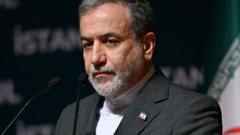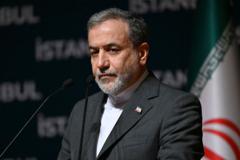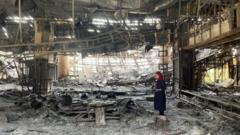Iran's foreign minister has confirmed "excessive" damage to nuclear sites following US and Israeli bombings, despite the Supreme Leader's claims that the country's nuclear program remains intact. With no plans to resume negotiations with the US, tensions escalate as Iran's parliament moves to curtail cooperation with global nuclear oversight.
Iran Acknowledges Damage to Nuclear Sites Amidst Conflicting Official Statements

Iran Acknowledges Damage to Nuclear Sites Amidst Conflicting Official Statements
Iranian officials reveal significant damage to nuclear facilities due to recent bombings, contrasting the Supreme Leader's claims of continued program integrity.
Iran's foreign minister, Abbas Araghchi, has acknowledged that "excessive and serious" damage was inflicted on the nation's nuclear facilities as a result of recent bombings carried out by the United States and Israel. Speaking to a state broadcaster, Araghchi stated that an assessment of the damage is underway, which starkly contrasts with earlier claims made by Iran's Supreme Leader, Ayatollah Ali Khamenei, who insisted that the strikes did not hinder the country's nuclear ambitions.
Khamenei responded to US President Donald Trump's assertion that the bombings had "totally obliterated" three nuclear sites, declaring instead that the attacks achieved nothing significant. This declaration came amidst rising tensions following Israel's ongoing conflict with Iran, which escalated on June 13.
Despite the Supreme Leader's assurances, Araghchi's remarks paint a different picture of the situation. He also confirmed there are currently no plans for the resumption of nuclear talks with the United States. Negotiations were previously set to resume when Israel began its strikes, leading to Iran's cancellation of the scheduled discussions. Araghchi stated, "I would like to state clearly that no agreement, arrangement, or conversation has been made to start new negotiations," adding that the government is reevaluating its diplomatic strategy considering the "interest of the Iranian people."
Efforts by the Trump administration to bring Iran back to the negotiating table have included discussions about potentially helping Iran access $30 billion for a civilian nuclear energy project, along with easing sanctions and releasing blocked Iranian funds. However, these initiatives may be hindered by Iran's recent legislative moves.
Additionally, Iran's parliament passed a bill aimed at halting cooperation with the International Atomic Energy Agency (IAEA). If enacted, this legislation would cut off access for nuclear inspectors to Iran’s facilities, further complicating international oversight.
On the ground, Israel maintains that its military operations against Iran are crucial to disrupt what they allege are efforts to develop nuclear weapons, while Iran insists its nuclear program is solely for peaceful purposes. The US had directly intervened in this ongoing conflict, striking key locations such as Fordo, Natanz, and Isfahan, leading to claims from US Defense Secretary Pete Hegseth that the attacks successfully impaired Iran's nuclear capabilities, potentially delaying progress for years.
In contrast, leaked preliminary Pentagon reports indicate the damage may have been less extensive, estimating only a few months of delay in Iran's nuclear program, a claim that the administration has since rejected. Amidst these military actions, Iran reported 610 casualties from the Israeli strikes over twelve days, while Israeli sources listed 28 fatalities on their side. As the situation unfolds, the Iranian populace grapples with the aftermath, revealing a deeply shaken society still reeling from the impacts of conflict.






















